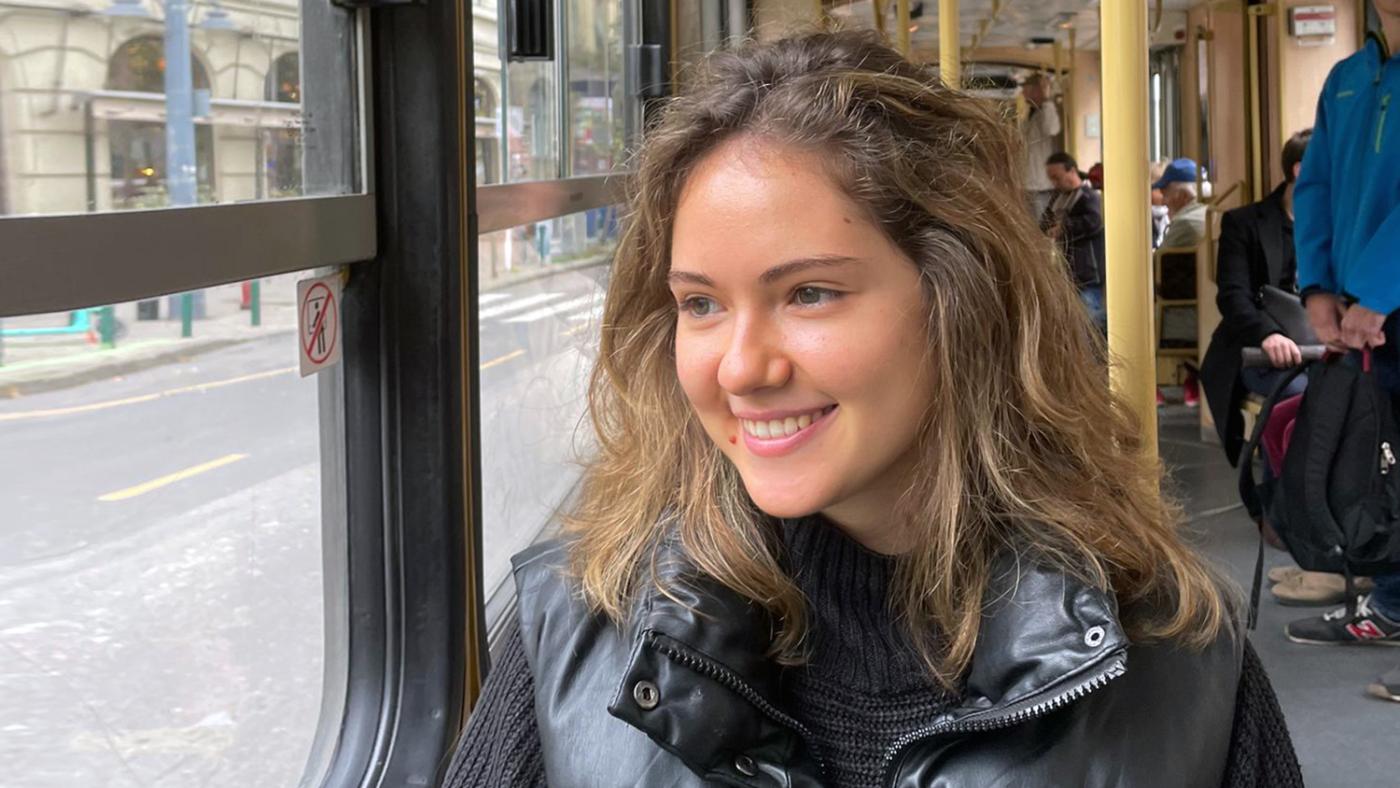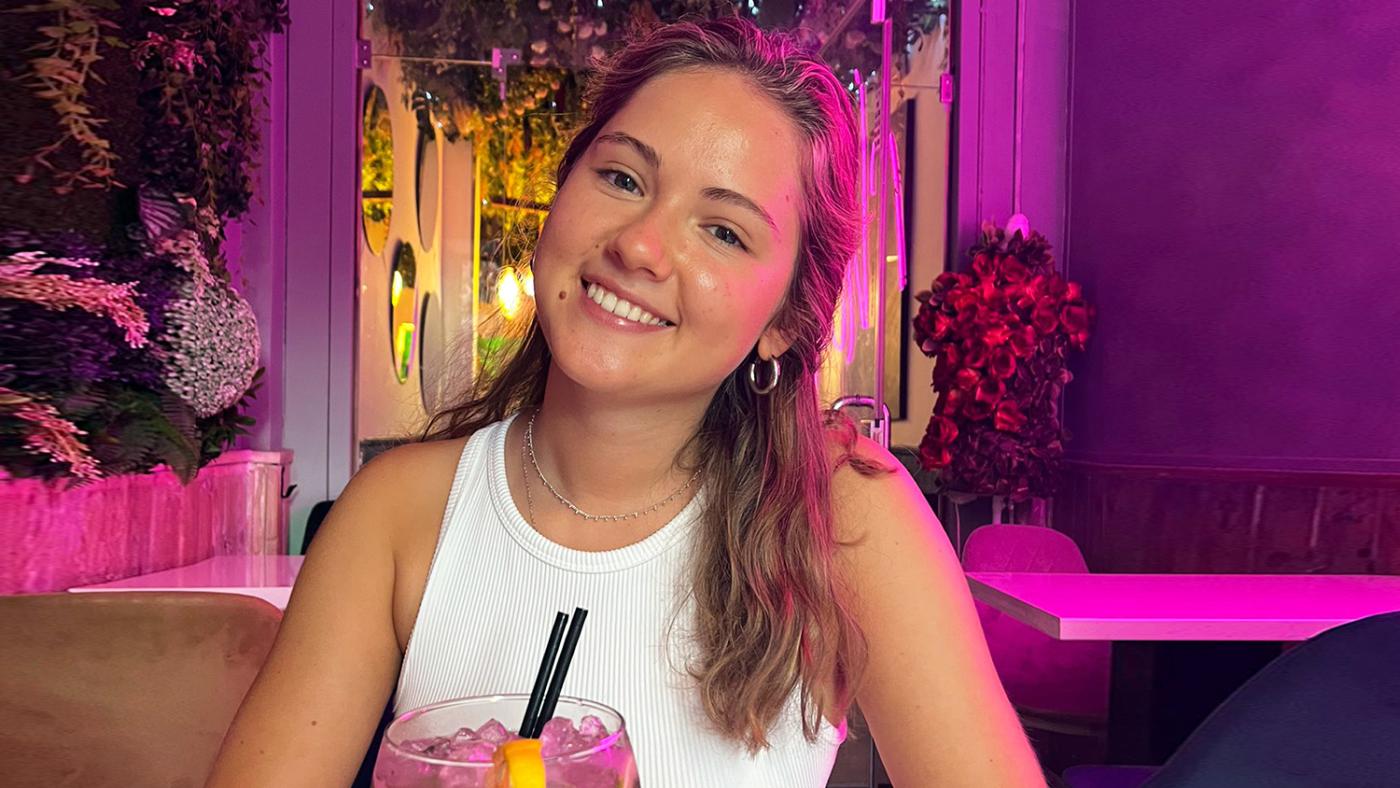Cash-strapped
‘The Dutch ‘Tikkie’ culture suits me well’

When 20-year-old Laura, who grew up in Madrid and Budapest, thinks about money, the first thing that comes to her mind is: "Don’t spend it." She learned this financial caution from her parents. “We didn’t need to worry about money but my father was frugal and always looked for the best deals, sometimes almost obsessively. I think he inherited that attitude from his parents as well.”
"Once, when we went out for dinner and he spent an hour scouring every restaurant in the area to see which one was the cheapest. He compared all of the menus meticulously,” the student Liberal Arts & Sciences recalls. But she can laugh about it all now. “At the time, I thought he went too far but now that I'm living on my own, I have been noticing that I'm pretty similar to him, for the most part."
Asked to specify when exactly she feels like an apple that didn't fall that far from the tree, she explains: "I stress out every time I have to spend a lot of money. For example, I am currently working on a visa application to go on exchange to San Diego next year and those expenses seem so unnecessary that they kind of give me a stomachache.”
Avoiding large expenses
That's why she avoids parting ways with her money as much as she can. She hardly ever buys clothes, for instance. "I don't care much about that, either. I prefer to make sure that I take good care of the items I already have, or exchange something with my friends. That's a lot more fun because there is a positive association with the garment."
Her daily expenses mainly consist of groceries, which she buys at Plus, a relatively more expensive supermarket. “That's because Plus is around the corner from my place. The habit of doing my groceries there has unconsciously worn in, so I choose to pay more for the convenience.”
But once she’s at the grocery store, she avoids buying expensive items and keeps a close eye on the offers in order to limit her expenses on groceries as much as possible. Laura uses Excel sheets to keep track of her expenditures. “I think it’s important to have an overview of where my money is going as it allows me to identify ways to save money."

‘Tikkie’ culture and airline tickets
Even though Laura isn't Dutch, she thinks that she fits right in with the stereotypical image of the stringy Dutchman. “It’s funny, really. This 'Tikkie' culture suits me so well. I was a little bit shocked when I first arrived here because I was used to the Spanish hospitality. Getting a link to pay my share afterwards felt so direct, like: "Okay, we had a good time, now pay me back." But I like it now."
Stinginess isn’t quite the right word in Laura’s case, though. She finds it hard to spend money on herself but, when the expense is for people she loves, that's not a problem, which explains why there is no guilt associated with the purchase of plane tickets. Laura's parents are divorced and one of them lives in Madrid, the other in Budapest. Her largest expense is, by far, covering the distance to see them in the summer and winter, which amounts to at least four two-way tickets a year. Each month, she has to set aside a significant part of her income to be able to do that.
A thousand euros
Laura is lucky: her parents pay her tuition fees and rent, in addition to giving her 500 euros a month. That's just enough money to get by, considering the amount she has to set aside for the flights and the visa application procedures. She has no side job. Asked whether she's annoyed at spending so much money on plane tickets, she shrugs: "It's easier for me to spend money when I'm buying an experience, something that will form a memory beside the people I love.” The same goes for her expenses here in the Netherlands: though she prefers not to spend money on superfluous things for herself, she enjoys buying small gifts for her friends and occasionally joining them for a drink in the city. For this reason, Laura's reply comes as no surprise when we ask her what she would do with 1,000 euros: “I would give it to my parents as a token of my appreciation. No, wait, they wouldn’t take that. Then I would book a holiday with both my parents. Is that allowed?”

Monthly revenue
500 euros from her parents
Expenses
Groceries: 300 euros
Eating out, drinks, gifts, outings: 80 euros
Public transport: 20 euros
Clothing and toiletries: 20 euros
Savings to pay for plane tickets: 80 euros